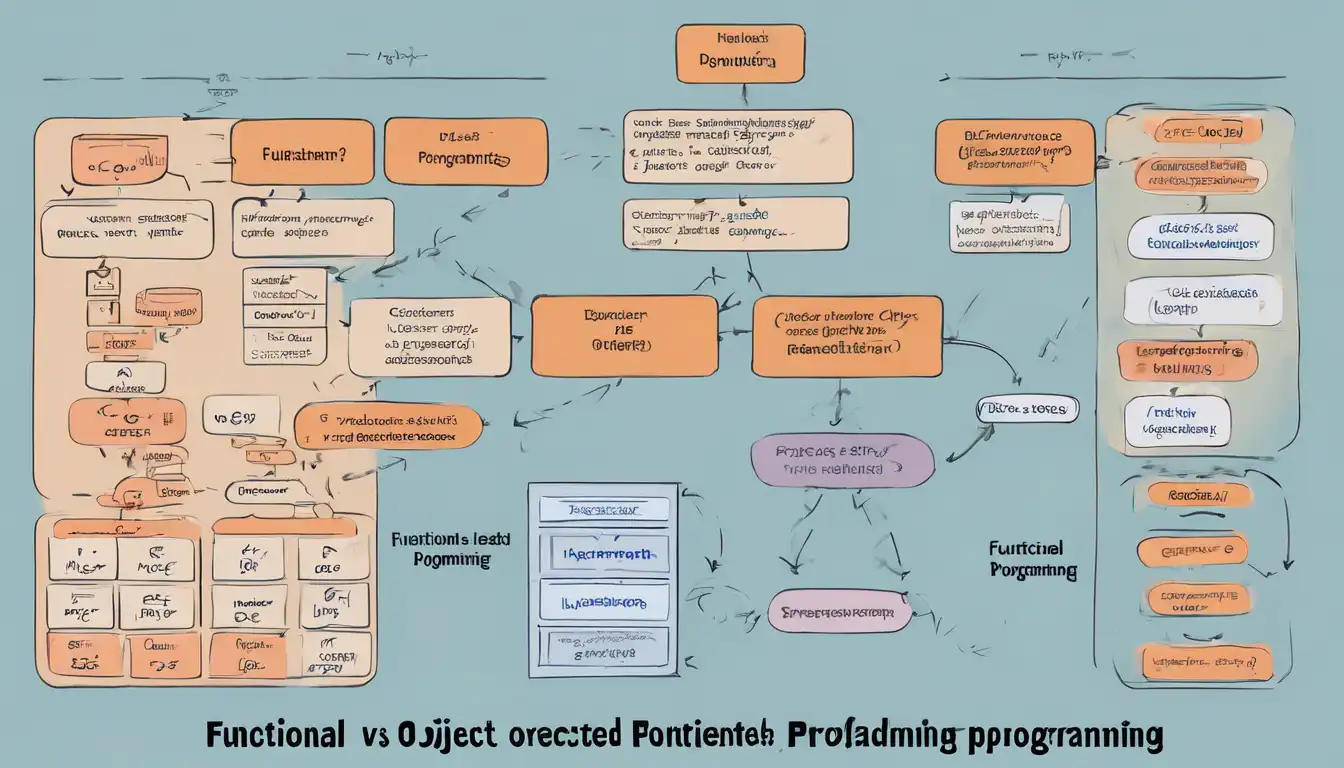Introduction to Programming Paradigms
In the world of software development, understanding the differences between functional programming (FP) and object-oriented programming (OOP) is crucial for choosing the right approach for your project. Both paradigms offer unique advantages and challenges, making them suitable for different types of applications.
What is Functional Programming?
Functional programming is a paradigm that treats computation as the evaluation of mathematical functions and avoids changing-state and mutable data. It emphasizes the application of functions, in contrast to the imperative programming style, which emphasizes changes in state.
- Immutability: Data is immutable, meaning it cannot be changed after it's created.
- First-class functions: Functions are treated as first-class citizens, allowing them to be passed as arguments, returned from other functions, and assigned to variables.
- Pure functions: The output of a function depends only on its input, without any side effects.
What is Object-Oriented Programming?
Object-oriented programming is a paradigm based on the concept of "objects", which can contain data and code: data in the form of fields (often known as attributes or properties), and code, in the form of procedures (often known as methods).
- Encapsulation: Bundling of data with the methods that operate on that data.
- Inheritance: The mechanism of basing an object or class upon another object or class, retaining similar implementation.
- Polymorphism: The ability to present the same interface for differing underlying forms (data types).
Comparing Functional and Object-Oriented Programming
When deciding between functional and object-oriented programming, consider the nature of your project. FP is often preferred for mathematical computations, data analysis, and situations where immutability is crucial. OOP, on the other hand, is ideal for large, complex systems that require modularity and reusability.
Performance Considerations
Functional programming can lead to performance optimizations through lazy evaluation and parallel processing. Object-oriented programming, with its mutable state, can sometimes complicate parallel execution but offers more intuitive modeling of real-world entities.
Scalability and Maintenance
Functional programming's emphasis on pure functions and immutability can make code more predictable and easier to test, leading to better scalability and maintenance. Object-oriented programming's modularity and encapsulation can also enhance maintainability, especially in large codebases.
Conclusion
Both functional and object-oriented programming have their place in software development. The choice between them depends on the specific requirements of your project, including performance needs, scalability, and team expertise. By understanding the strengths and weaknesses of each paradigm, you can make an informed decision that best suits your development goals.
For more insights into programming paradigms, check out our articles on software development and coding best practices.
